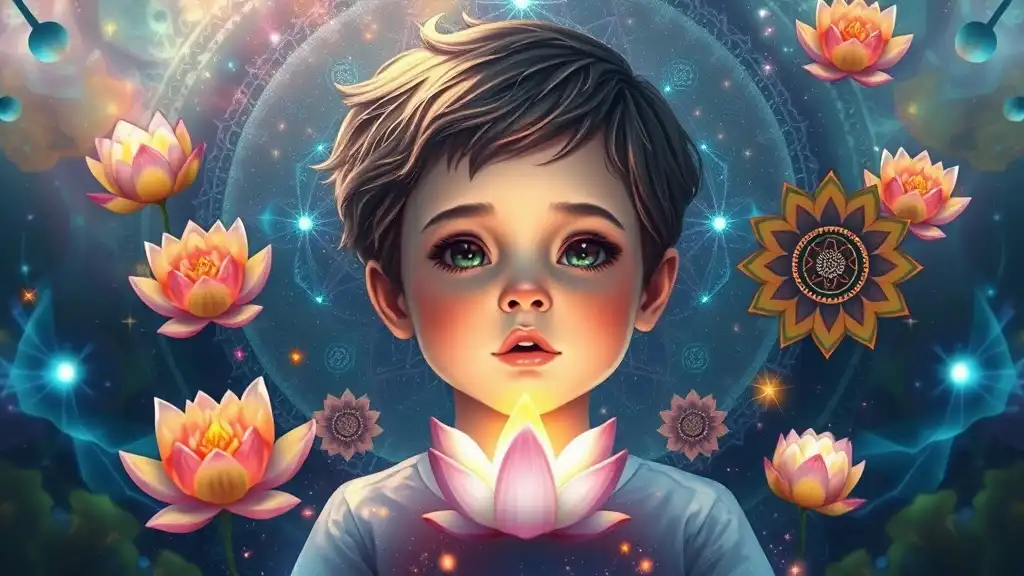Understanding Autism
Autism spectrum disorder (ASD) is a complex neurodevelopmental condition characterized by a range of symptoms and behaviors. This condition often manifests in difficulties with social skills, repetitive behaviors, and challenges in communication. However, autism encompasses a diverse spectrum, which means that each individual experiences it uniquely. While traditionally viewed through a medical or psychological lens, there is an emerging understanding of autism's deeper, spiritual dimensions that can potentially enrich our perspectives on those who are on the spectrum.
Definition and Characteristics
Autism is defined by the presence of varying degrees of difficulties in communication, social interaction, and restrictive or repetitive behaviors. Individuals on the spectrum may exhibit unique interests, exceptional talents, or atypical sensory sensitivities. Recognizing these characteristics is critical to understanding the full picture of autism, but it is equally important to delve into the spiritual aspect of this experience.
Perspectives on Autism
While the medical and psychological views of autism tend to focus on diagnosing and managing symptoms, societal perceptions have often veered into misunderstanding. By shifting the focus towards a spiritual interpretation, we can begin to see autism not merely as a condition to be treated but as a unique spiritual journey that opens doors to deeper understanding and acceptance.

The Spiritual Dimension of Autism
The Unique Spiritual Path
A thriving body of thought suggests that individuals with autism may possess a distinct way of experiencing the world. The filters through which they perceive reality can offer profound insights into the nature of existence. Many autistic individuals report heightened intuition and sensory awareness, which could be seen as a form of spiritual connection. They might resonate with energies that others overlook, providing them a unique insight into the universe's interconnectedness. Acknowledging this perspective can encourage a more inclusive understanding of spirituality that embraces every way of being.
Autistic Intuition and Empathy
One of the most remarkable aspects of autism is the capacity for deep empathy and intuition. Autistic individuals often demonstrate an acute sensitivity to the emotions of those around them, engaging with feelings that may go unnoticed by others. This heightened perception can be viewed as a spiritual gift, enabling greater understanding and compassion. By fostering environments that nurture these abilities, we not only support autistic individuals but also enrich the spiritual fabric of our communities.

Holistic Approaches to Autism
Mindfulness and Meditation
Mindfulness and meditation have gained traction among various communities for their calming and grounding effects, particularly for those with autism. These practices can help individuals connect with their inner selves, reduce anxiety, and cultivate a state of spiritual awareness. Simple techniques such as guided imagery or mindfulness breathing can facilitate a profound sense of peace and self-understanding. The practice of being present encourages individuals to engage with their surroundings while also fostering acceptance of their unique experiences.
Alternative Healing Practices
Beyond conventional methods, alternative healing modalities—such as Reiki, sound healing, or crystal chakra balancing—can provide significant benefits for individuals on the spectrum. These practices align with the idea that energy flows through all living beings and that balance in this energy is essential for well-being. Nature itself plays a vital role in this healing process; spending time outdoors can encourage a sense of peace and connectedness to the spiritual realm, which can be especially beneficial for autistic individuals.

The Role of Community and Support
Building Spiritual Communities
Community support plays an essential role in the spiritual well-being of individuals with autism and their families. Creating spaces where people can share their experiences, thoughts, and feelings fosters belonging and understanding. Spiritual communities that are inclusive can amplify the message of acceptance and celebrate the unique gifts of autistic individuals.
Encouraging Understanding and Acceptance
As the world transitions towards a greater awareness of autism's spiritual dimensions, it is essential to promote acceptance, understanding, and educational outreach. Encouraging families, educators, and peers to recognize and appreciate the spiritual aspects of autism can help dismantle stigma and open doors for deeper connections. Engaging in meaningful dialogue can lead to transformative societies where the spiritual truth of each individual is woven into the collective fabric of humanity.

Personal Growth and Development
Embracing Differences as Spiritual Lessons
The journey of navigating autism holds profound lessons for both the individual and the community. Embracing differences rather than stigmatizing them allows autistic individuals to thrive while teaching society to celebrate diversity in all its forms. By recognizing that each autistic experience brings unique insights, we can foster deeper personal growth and a shared understanding of the beauty in our differences.
Stories of Autistic Spirituality
Anecdotal experiences help shed light on the spiritual journey of many autistic individuals. These stories often highlight extraordinary gifts, such as profound creativity, distinctive sensory perceptions, or remarkable empathy. Recognizing these narratives creates a tapestry of inspiration and understanding while allowing autistic voices to be heard and celebrated.

Conclusion
The spiritual meaning of autism offers a deep well of insights, urging us to expand our understanding of this complex phenomenon. By integrating spiritual perspectives into the conversation surrounding autism, we can foster acceptance, promote understanding, and create an enriching environment for all. The journey toward recognizing autism as part of the human experience is not just beneficial for individuals on the spectrum; it invites society as a whole to grow, evolve, and embrace the incredible tapestry of life experiences.



















